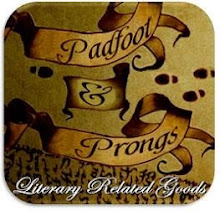Trilby Kent, author of Medina Hill, has graciously offered to talk a bit about her researching process for her book - which I loved.
It might sound a little strange, but I often find I enjoy researching a new book just as much as I enjoy writing. There’s something very exciting about historical research, in particular. Not only does it help to really understand my characters, to get under their skin, but it can also suggest all sorts of alternative plot developments that would never have occurred to me otherwise. One thing that you learn very quickly as a historical novelist is that fact often really is stranger than fiction!
I had to do two types of research for Medina Hill. The book is partly about Dominic’s discovery of a real-life hero – Lawrence of Arabia – who had risen to fame in the days of the Great War. Although I’d been very interested in Lawrence for several years prior to writing the book, I did need to polish up my history of the Arab Revolt and decide how much of this was relevant to Dominic’s story. The second type of research related to the time and places in which the main action of the novel is set; namely, England in the 1930s.
Whereas the Lawrence research was fairly straightforward – checking names and dates in reference books and online – I was very keen to capture the “feel” of Dominic’s world in a way that would evoke the sounds and smells and tastes of Cornwall in the summer, or London’s East End. This meant sampling some of Marlo’s favourite recipes and listening to popular music from the period, as well as traditional Romany songs. I found an early edition of Lowell Thomas’ The Boys’ Life of Colonel Lawrence, on which I based the book that Dominic discovers at the beginning of the story. I went to see an exhibition of work by Madge Gill, who drew pictures inspired by what she claimed were clairvoyant experiences, similar to Birdie’s drawings. I visited Cornwall, which was already one of my favourite English destinations, and stayed in a house that had once been part of an artists’ commune very much like the one I imagined for the book. I watched documentaries on selective mutism (which is the modern name we’d use to describe Dominic’s inability to speak) and learnt about a carrier pigeon that saved 200 lives in the First World War. Most of the time, this kind of research hardly felt like work at all!
Of course, it’s not enough simply to pool lots of interesting facts and shoehorn them into a book. The challenge is to make the research melt into the story, so that readers are so absorbed by what’s happening to the characters they don’t feel they’re being taught a history lesson. That’s one of things I hoped to achieve with Medina Hill. If it inspires some readers to go off and do a little research of their own, that’s a bonus!
-Trilby Kent
Announcements!
Wednesday, November 4, 2009
Researching Medina Hill with Trilby Kent
Subscribe to:
Post Comments (Atom)







I'm really looking forward to reading your book even more now, knowing you took your time to research everything and really got into the mind set of your character makes it much more interesting.
ReplyDeleteThis is fascinating -- excellent guest post!
ReplyDeleteI'm a speech-language pathologist and have worked with 2 little girls with selective mutism. It's such a fascinating disorder and so difficult to overcome.
ReplyDeleteLove that you listened to the music of the time and sampled the food as research. Certainly beats all the library time I logged researching as a student!
melacan at hotmail dot com
I always like to know what kind of music listened to authors when they ae writting!
ReplyDeleteShe did a great research for her book!